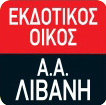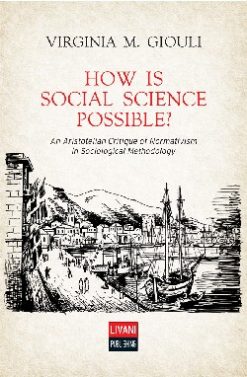Είστε 25€ μακριά από την Δωρεάν Αποστολή.

Virginia M. Giouli
Dr Giouli, born in Athens, studied Ancient Greek Literature and Philosophy at the National and Capodistrian University of Athens. She attended the Arsakeion School at Athens. Holding her Ph.D. from the University of Reading, U.K., she is a member of many International Societies for Philosophy and a collaborator of International Philosophical Journals. She has taught Political Philosophy at the National and Capodistrian University of Athens. Her angle, as elaborated in many languages, in a long and highly regarded series of publications, monographs and papers in International Congresses, pursues the logically impossible in Philosophy. As has been defined by Kristeva, this «feminine» vision –irrelevant to a sexist bisection– deals painstakingly with the humanisation of everyday life to respond to the epistemological demands of modern times. Giouli is a member of Scholars’ Association of Alexander S. Onassis Public Benefit Foundation; as an internationally respected figure in the field of Philosophy and due to profound respect that the international scientific community holds in her work in the field of Thought and Ethics, and in view of her highly respected contributions for many years she has been invited to nominate candidates for The Kyoto Prize in Arts and Philosophy, presented by the Inamori Foundation, Kyoto, Japan, being honoured to consider her esteemed recommendations. As fitly added by her tutor in Philosophy, E. Moutsopoulos, Professor Emeritus of Philosophy in National and Capodistrian University of Athens, Member of the Academy of Athens, referring especially to her monographs The Taming of Power: A Christian Critique of Theories of Historical Development, On Byzantine Liberalism and The Phenomenological Intuition of Space as the Nurturer (τιθήνη) of History thus sociological methodology is re-established philosophically as a genuine value that prepares, in its turn, the re-birth of modern Greek social and political thought. Every philosophical department, Professor Moutsopoulos adds, would consider itself privileged to refer to philosophical Works of such status.
Βιβλιογραφία:
Επιστήμες

